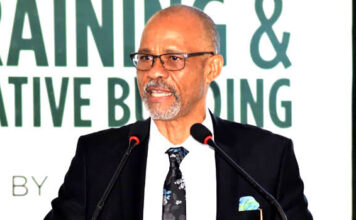The Commissioner for Health, Professor Akin Abayomi, disclosed that following the cholera outbreak in various communities in Lagos, Lagos Island recorded the highest number of suspected cholera cases, with 106 out of the total 350 suspected cases reported.
Abayomi shared this information on Monday through his official X account @profakinabayomi while providing an update on the state’s cholera outbreak.
Cholera, as stated by the World Health Organization, is an acute diarrheal illness caused by the consumption of food or water contaminated with Vibrio cholerae bacteria, leading to severe watery diarrhea. If untreated, severe forms of the disease can result in death within a few hours.
He mentioned that laboratory tests had identified the outbreak as cholera, with a particularly aggressive and transmissible strain that has the potential for widespread spread.
Regarding the morbidity and mortality rates, Abayomi revealed that there were 350 suspected cholera cases reported in 29 wards across multiple local government areas in the state. Out of these cases, 17 have been confirmed, and 15 deaths were attributed to severe dehydration resulting from delayed presentation at healthcare facilities.
The distribution of suspected cases by Local Government Areas indicated that Lagos Island had the highest number of cases with 106, followed by Kosofe with 49, Eti-Osa with 38, Lagos Mainland with 30, and Ojo with 17. Other affected LGAs included Ikorodu with 16 cases, Kosofe with 16, Shomolu with 11, Surulere with nine, Apapa and Mushin with eight each, Ifako Ijaiye with eight, Mushin with five, Alimosho with four, Ajeromi Ifelodun with four, Oshodi-Isolo with three, Ikeja with three, Ibeju Lekki with two, Badagry with two, and Amuwo-Odofin with one.
“Through community-based case finding and contact tracing, we have observed that the number of cases has peaked and is now significantly declining,” he highlighted.
He emphasized that the state was ramping up its public health campaigns to prevent a resurgence.
He mentioned that suspected cases are being treated for free at state health facilities, following public health protocols.
Abayomi mentioned that the state is receiving assistance from the Nigeria Centre for Disease Control, as well as international partners like the World Health Organisation and the United Nations Children’s Fund.
He also noted the involvement of local NGOs in spreading awareness and carrying out community surveillance activities.
Regarding cholera causes and transmission, the commissioner explained that contaminated water and food are the main causes, with transmission being common in areas lacking proper water treatment, sanitation, and hygiene.
He highlighted the symptoms of cholera, which include severe diarrhea, vomiting, dehydration, rapid heartbeat, low blood pressure, thirst, and muscle cramps.
“Symptoms can appear within a few hours to five days after infection,” he warned.
To prevent cholera, citizens should drink safe water (boiled, treated, or bottled), eat thoroughly cooked and hot food, and avoid raw foods.
Maintaining good hygiene is crucial, including regular handwashing with soap and clean water, proper use of sanitation facilities, and proper waste disposal. For treatment, prompt rehydration is essential, and oral rehydration salts are vital.
However, severe cases may require medical attention, intravenous fluids, and antibiotics. If symptoms occur, seek immediate medical help and report suspected cases to the health hotlines: 08023169485, 08137412348, 767, or 112.
